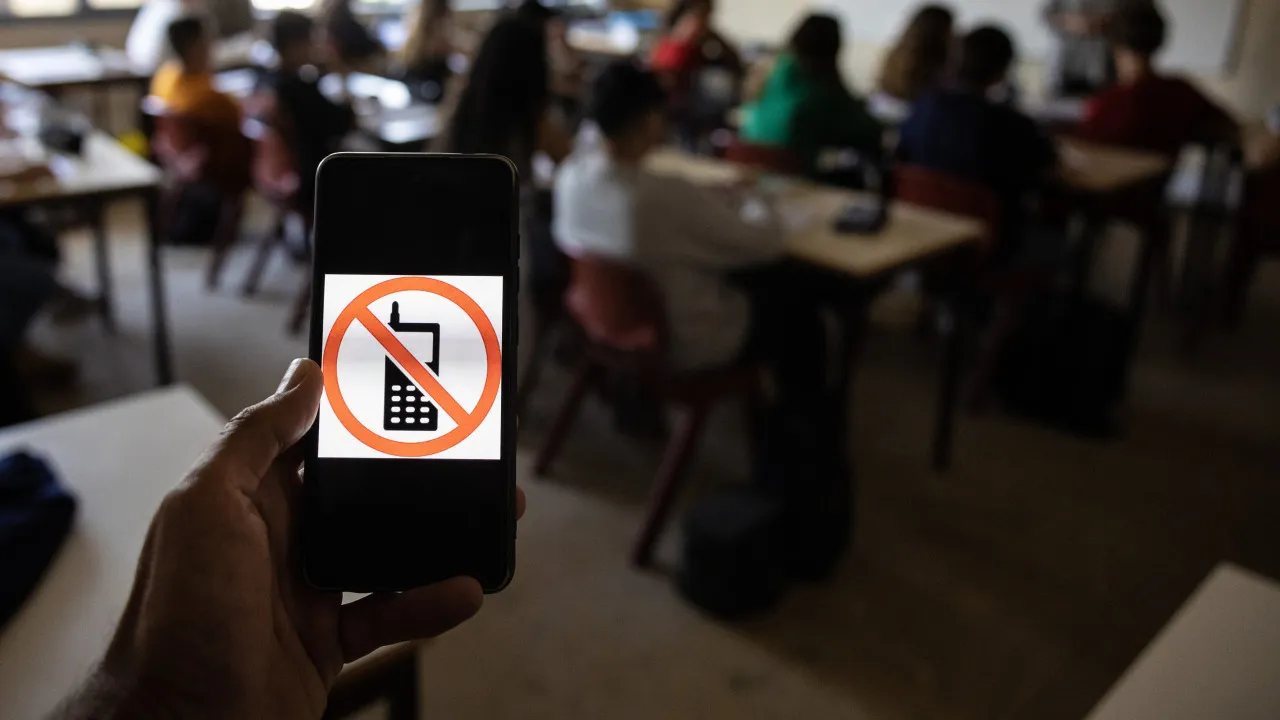
The conclusions presented today arise from a national survey conducted by the National Federation of Education (FNE) and the Association for Training and Research in Education and Work (AFIET).
Among the 4,638 teachers surveyed, the overwhelming majority disagree with allowing students up to the 9th grade to use mobile phones in school spaces, with many extending this disapproval further.
Nearly seven out of ten teachers believe that not even older students should be able to use smartphones during recess, a restriction that has never been formally proposed by the Government.
Last year, the Ministry of Education, Science and Innovation (MECI) recommended banning smartphones from the 1st to the 6th grade, meaning up to 12 years old, but starting in September, the recommendation will become a rule.
For the 7th to 9th grades, the Government aims to promote limited, responsible, and adapted use, but from the 10th grade onward, restrictions will be lifted, only recommending “responsible and adapted use.”
Furthermore, the FNE sought to understand teachers’ views on using mobile phones as work tools. Despite a greater acceptance of devices for this purpose, more than half (52.8%) opposed their pedagogical use in primary education.
In this context, teachers’ positions change when older students are involved, with 63.3% agreeing with the use of smartphones in class.
Regarding digital school textbooks, a minority is favorable, with 65.8% preferring paper.
Next school year, schools starting from the 7th grade will be allowed to choose between the two formats, but they must justify their decision if opting for the digital format.
MECI’s decision is based on a study by the Directorate-General for Education and Science Statistics (DGEEC), which found no significant effects on students’ performance.
In terms of digitalization, the vast majority of teachers strive to keep up with transformations and apply them in the classroom; seven out of ten believe these changes could positively alter learning conditions.
Nevertheless, about half think they might also complicate classroom work. Regarding artificial intelligence, 64.7% state they lack the knowledge to assess whether students’ work is created using generative artificial intelligence (AI).
Some teachers have already turned to AI tools for class preparation or activities, but these remain a minority, mainly among younger educators.
Despite the increasing digitalization of education, results show that 34.2% have not attended any digital skills training, a percentage the FNE still considers high.




